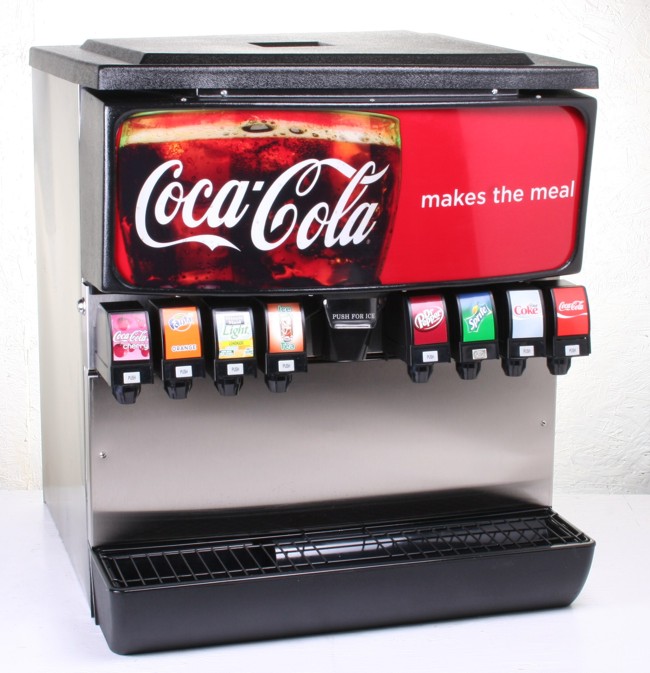(treehugger.com) Reasons not to eat at fast food restaurants keep piling up. A recent study shows that 48% of soda fountains contain caliform bacteria. This bacteria commonly grows in feces. 11% of them also contained E. coli. The study was conducted by microbiologists from Hollins University and the results published in the International Journal of Food Microbiology.

According to the scientists abstract: “…coliform bacteria was detected in 48% of the beverages and 20% had a heterotrophic plate count greater than 500 cfu/ml. Statistical analyses revealed no difference in levels of microbial contamination between beverage types or between those dispensed from self-service and personnel-dispensed soda fountains. More than 11% of the beverages analyzed contained Escherichia coli and over 17% contained Chryseobacterium meningosepticum. Other opportunistic pathogenic microorganisms isolated from the beverages included species of Klebsiella, Staphylococcus,Stenotrophomonas, Candida, and Serratia. Most of the identified bacteria showed resistance to one or more of the 11 antibiotics tested.”The soda fountains not only contain bacteria from poop and E.coli in dangerous amounts, they are also resistant to antibiotics.
The Environmental Protection Agency in the U.S requires drinking water to test negative of E. coli. Most of the soda beverages tested from the dispensers were below the U.S drinking standards. “The large number of beverages and soda fountain dispensers containing E. coli is still of considerable concern… and suggests that more pathogenic strains of bacteria could persist and thrive in soda fountain machines if introduced,” said the study authors. The study’s lead author and biology & Environmental studies professor, Renee Godard, said that, “Certainly we come in contact with bacteria all the time. It’s simply that some bacteria may potentially cause some disease or gastrointestinal distress. One thing we hesitate with is that people get afraid of bacteria. Many of them are benign or helpful, but certainly, I don’t want E.coli in my beverage.” Godard and her team acquired 90 beverages of diet soda, water and sugar soda from 30 fast food restaurants within a 22 mile area in Roanoke, Southern Virginia. They did the sample tests on both employee-dispensed machines and those that are self-service. During the study, no food-borne outbreaks were reported in the area.
Petri dishes were used to contain the samples taken. According to Godard, within 48 hours, the bacteria had multiplied and could be seen with the naked eye as 300 to 400 tiny dots. They are uncertain of how the bacteria could have gotten inside the dispensing machines but it could be from using an unclean hand to dispense or cleaning the machines using wet rags. Although the ice on the machines could be contaminated, the researchers ruled it out after testing it and finding no coliform bacteria on it.
The bacteria and E.coli found are mostly harmless but could cause urinary tract infections, diarrhea, pneumonia and respiratory illness. The Chryseobacterium meningosepticum could also sicken adults or newborns that have a weak immune system.The researcher’s findings suggest that “soda fountain machines may harbor persistent communities of potentially pathogenic microorganisms which may contribute to episodic gastric distress in the general population and could pose a more significant health risk to immune compromised individuals. These findings have important public health implications and signal the need for regulations enforcing hygienic practices associated with these beverage dispensers.”In other words, fast foods may well be serving you bacteria (feces), which are disgusting and they should clean up their act in matters beverage fountains. As a customer, you won’t have to get sick from taking soda if they take necessary precautions.
¿What do you say about it? ...tell me in the comment section
Fuente: www.treehugger.com
